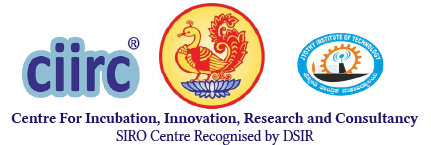Overview
Research Focus
Select Publications
Facilities
Projects
Research Staff
Overview
Science and technology had reached its pinnacle in ancient India. The study of ancient scientific disciplines has seen growth and made important contributions to the understanding of the progress of modern science, which also involves methods of the linguist and the philologist. There have been many interesting and invaluable documents/scriptures that encompass knowledge in various disciplines including Ayurveda, Mathematics, Astrology, Astronomy, Archaeology, History, Physics, Chemistry, Metallurgy, Biology, Medicine, Alchemy, Atomic Science, Fine arts (Music, Sculpture and Iconography), Architecture and Languages, all of which on amalgamation with modern science, can lead to the development of novel technologies. The study of Ancient Science and Technology stems from a need to
- Characterize the contemporary society
- Revisit the ancient Indian eco-friendly engineering practices
- Act as a pointer at the greatest promises and greatest threats of modern science
- Explain the impact on economy, medical well-being and the military
- Sustain and integrate the stratified class of modern science with ancient Indian science, leading to multi-disciplinary research
Research Focus
- Durable Cement
- Preparation of organic environment friendly cement lasting for millions of years
- Tempering of sword / Iron tools
- Retention of sharpness at the edges of cutting tools based on ancient Indian tempering processes

- Metal Cement
- Combination of few metals in specific proportions yielding strong metallic cement, commonly used in the construction of Ancient Indian temple
- Transformation of copper to golden color
- Conversion of copper to golden color for its possible application in solar cells and also testing for its anticorrosion properties
- Natural soil plasticizers
- Optimization of the proportion of addition of natural soil plasticizers as a combination of herbal extracts, natural fibres and natural polymers leading to soil stabilization
- Lime mortars/plasters
- Formulation of eco-friendly lime mortar/plaster, as a better alternative to the existing Portland cement, due to its flexibility, ability to self-heal and incredible durability

- Revival of Ancient Iron Smelting Technology
- Production of high quality iron and steel using low grade iron ores, by employing practices in harmony with nature and construction of eco-friendly furnaces, in line with ancient Indian metallurgical practices

- Natural Water Purifier
- Purification of water using various plant materials which is low cost eco-friendly alternative for rural areas
- Siribhuvalaya: Unfolding the underlying Mathematical ideas/concepts, unearthing &developing novel encryption techniques and unfurling of the multi-lingual scientific knowledge encompassed in the ancient Indian treatise Siribhuvalaya; collation of the data and to bring to light the ancient Indian science as it would lead to repository of information beneficial to various segments of society
- Siribhuvalaya, a Numeric-lingual poesy is a compendium of Indian culture, philosophy, religion, art and science
- It encompasses literature in 718 languages of the world, thoughts on 363 religions/ philosophies and detailed information about 64 art forms including Animal Husbandry, Atomic Science, Aerospace/Space Travel, Mathematics, Computer Science, Ayurveda, Astrology, Physics, Chemistry, Metallurgy, Musicology, Dramatic Arts, etc.
- It induces a revolutionary concept of different encryption techniques
- Each page of this treatise corresponds to a ‘chakra’ and a scheme for deciphering of a chakra is termed as ‘bandha’
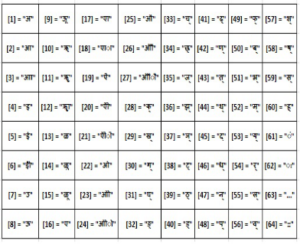
Multilingual Phonetic Alphabet Encoding Scheme
(for implementation of mono-alphabetic substitution cipher)
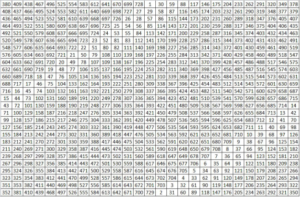
Shreni Bandha Encryption Pattern – first chapter of Siribhuvalaya
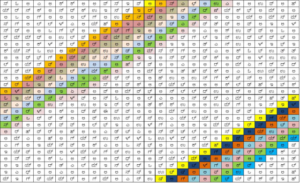
First Matrix of Siribhuvalaya – Substitution of numeral with Kannada alphabets
Select Publications
- Studies on an Ancient Aircraft Material – Panchaloha. Padmashree Anand, Mohan C.B. Journal of Scientific and Industrial Research(2017)76:446-449. IF: 0.5
- Experimental Studies on Vataharanaloha – An Ancient Aircraft Material. Padmashree Anand, Mohan C.B. Journal of Scientific and Industrial ResearchAccepted. IF: 0.5
Facilities
Tribometer, Furnace (1200 o C)
Projects
- Enhancement of the mechanical properties of ferrous materials using ancient metallurgical techniques- SSPS
- Scientific Validation and Revival of Ancient Indian Technology: Re-visiting Eco-friendly Engineering Practices–SSPS
- Unearth and Develop of Novel Encryption Techniques as well as Unfurl Multilingual Scientific Knowledge Entrenched in the Ancient Indian Numeric-lingual Treatise “Siribhuvalaya”–SSPS
Research Staff
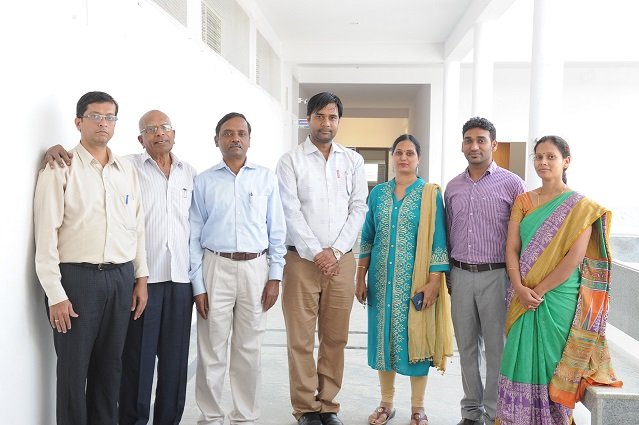
 Padmashree Anand an alumnus of Mangalore University holds a Ph.D in Material Science and specialized in materials science in ancient India with reference to Bharadwaja’s Vymanika Sastra on Vataharanaloha and Panchaloha. She also has a Master’s in Sanskrit from KSOU having topped the University and has undergone certification from IIT Kharagpur in Casting Technology and Ancient Indian Sceinces. She has been in the academic and research field over the last fourteen years. Her current research interests include studies on Ancient Food Science and Technology with particular reference to Pilot Food as in Bharadwaja’s Vymanika Sastra, Encryption techniques as used in ancient India and in plant biotechnology. She actively involved herself in R&D activities at RVCE in DST funded project on solar cells and played a key role in the successful completion of the BPR&D project. She has presented papers in national and international conferences and has a few publications to her credit. Padmashree Anand has also undergone comprehensive training on Leadership and Career Development for Women Scientists / Technologists organized by DST and Indo-US Science & Technology Forum, IISER, Pune and COACH International, USA. She is also a certified coffee brewer and has interest in music and is working as an Assistant Professor.
Padmashree Anand an alumnus of Mangalore University holds a Ph.D in Material Science and specialized in materials science in ancient India with reference to Bharadwaja’s Vymanika Sastra on Vataharanaloha and Panchaloha. She also has a Master’s in Sanskrit from KSOU having topped the University and has undergone certification from IIT Kharagpur in Casting Technology and Ancient Indian Sceinces. She has been in the academic and research field over the last fourteen years. Her current research interests include studies on Ancient Food Science and Technology with particular reference to Pilot Food as in Bharadwaja’s Vymanika Sastra, Encryption techniques as used in ancient India and in plant biotechnology. She actively involved herself in R&D activities at RVCE in DST funded project on solar cells and played a key role in the successful completion of the BPR&D project. She has presented papers in national and international conferences and has a few publications to her credit. Padmashree Anand has also undergone comprehensive training on Leadership and Career Development for Women Scientists / Technologists organized by DST and Indo-US Science & Technology Forum, IISER, Pune and COACH International, USA. She is also a certified coffee brewer and has interest in music and is working as an Assistant Professor.
Email Id: padmashree.a@ciirc.jyothyit.ac.in
 Surabhi K Iyer is a post graduate in Mathematics from St. Joseph’s College, Bangalore University. She is the recipient of INSPIRE Scholarship for Higher Education (SHE) DST, GoI since 2013. Her research interests include Ancient Indian Mathematics, Cryptography and Graph theory. Currently she is working as Research Fellow in the Centre and pursuing her doctoral degree from VTU.
Surabhi K Iyer is a post graduate in Mathematics from St. Joseph’s College, Bangalore University. She is the recipient of INSPIRE Scholarship for Higher Education (SHE) DST, GoI since 2013. Her research interests include Ancient Indian Mathematics, Cryptography and Graph theory. Currently she is working as Research Fellow in the Centre and pursuing her doctoral degree from VTU.
Email : surabhikmurthy@gmail.com
